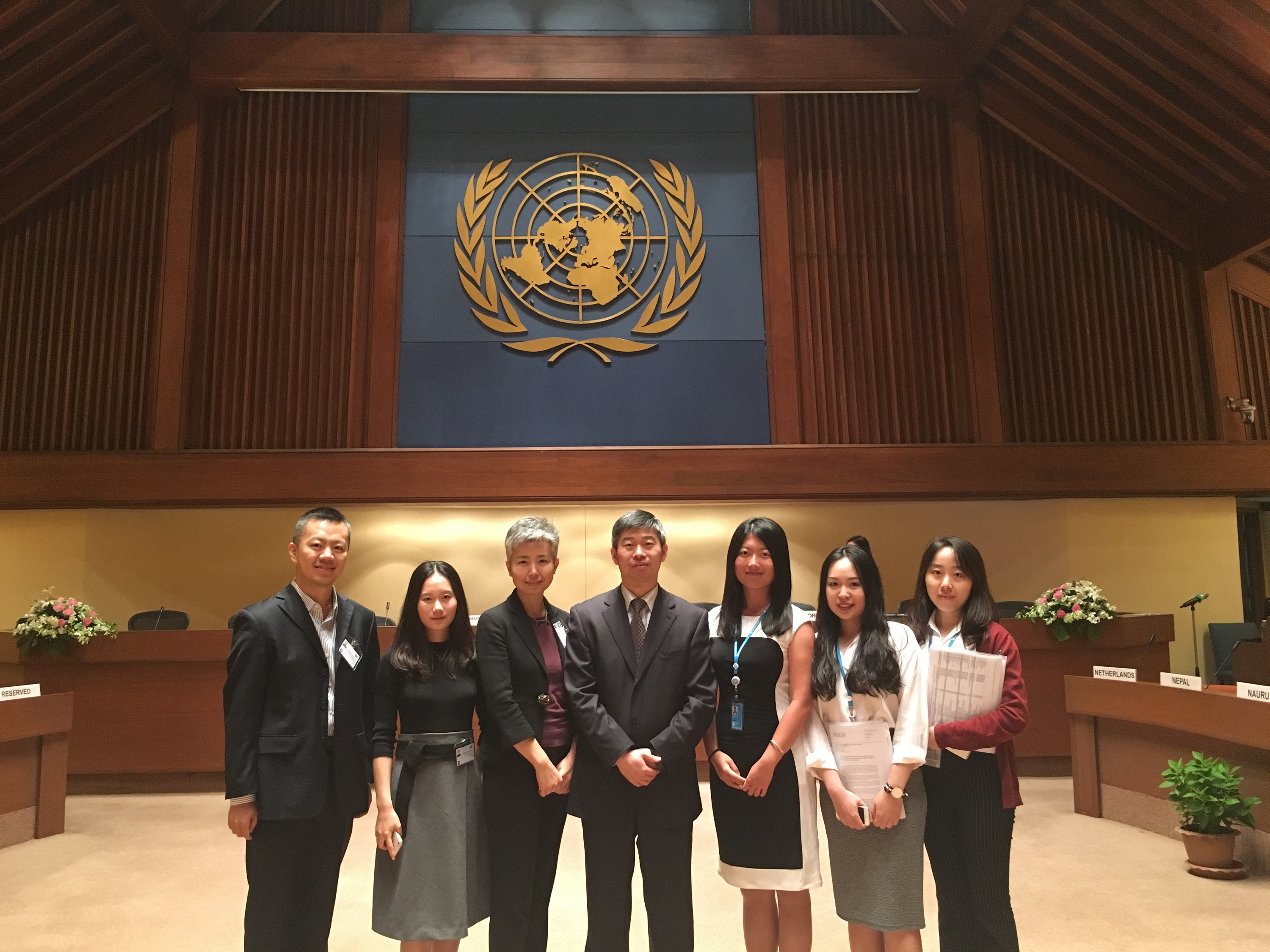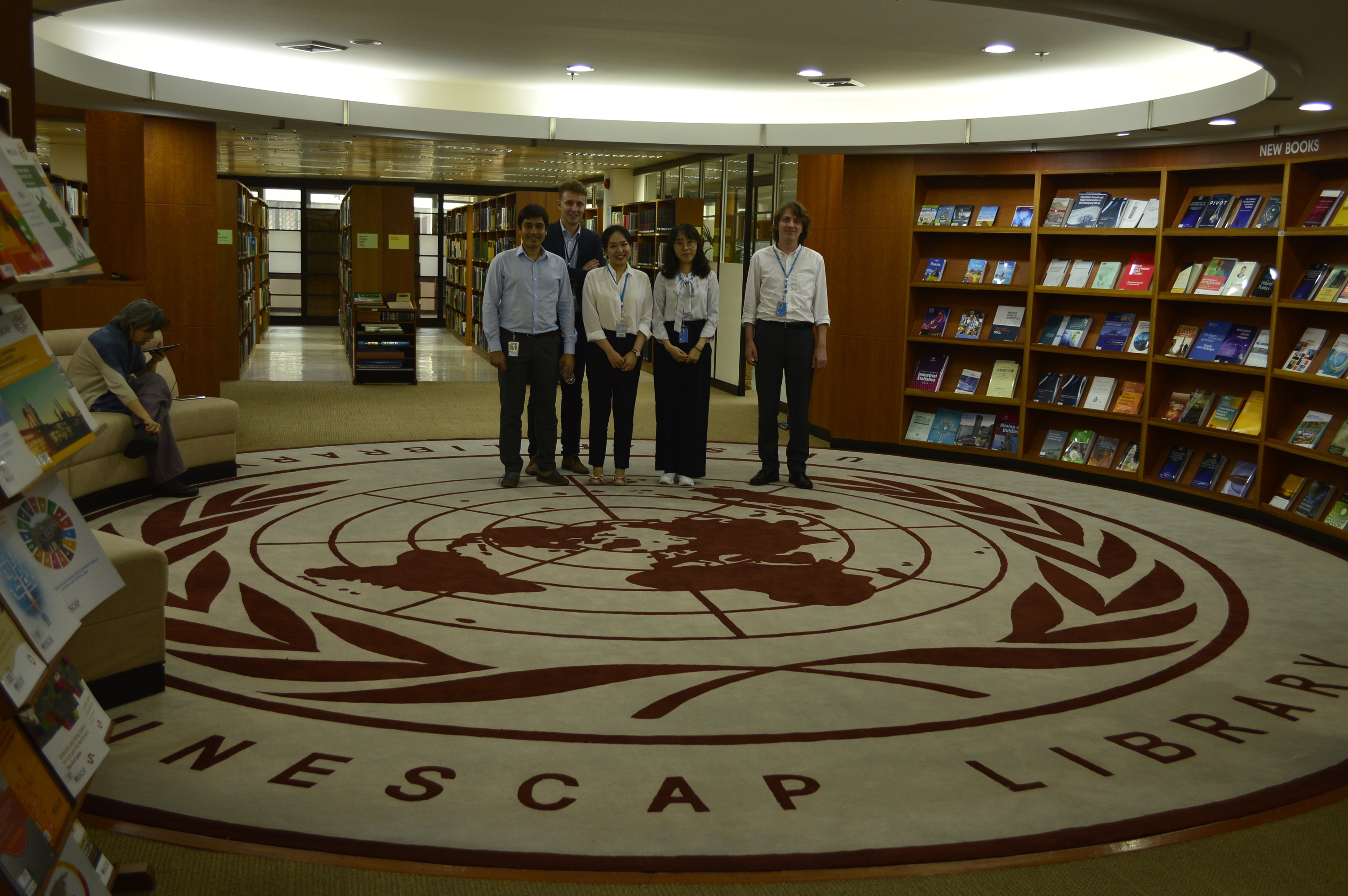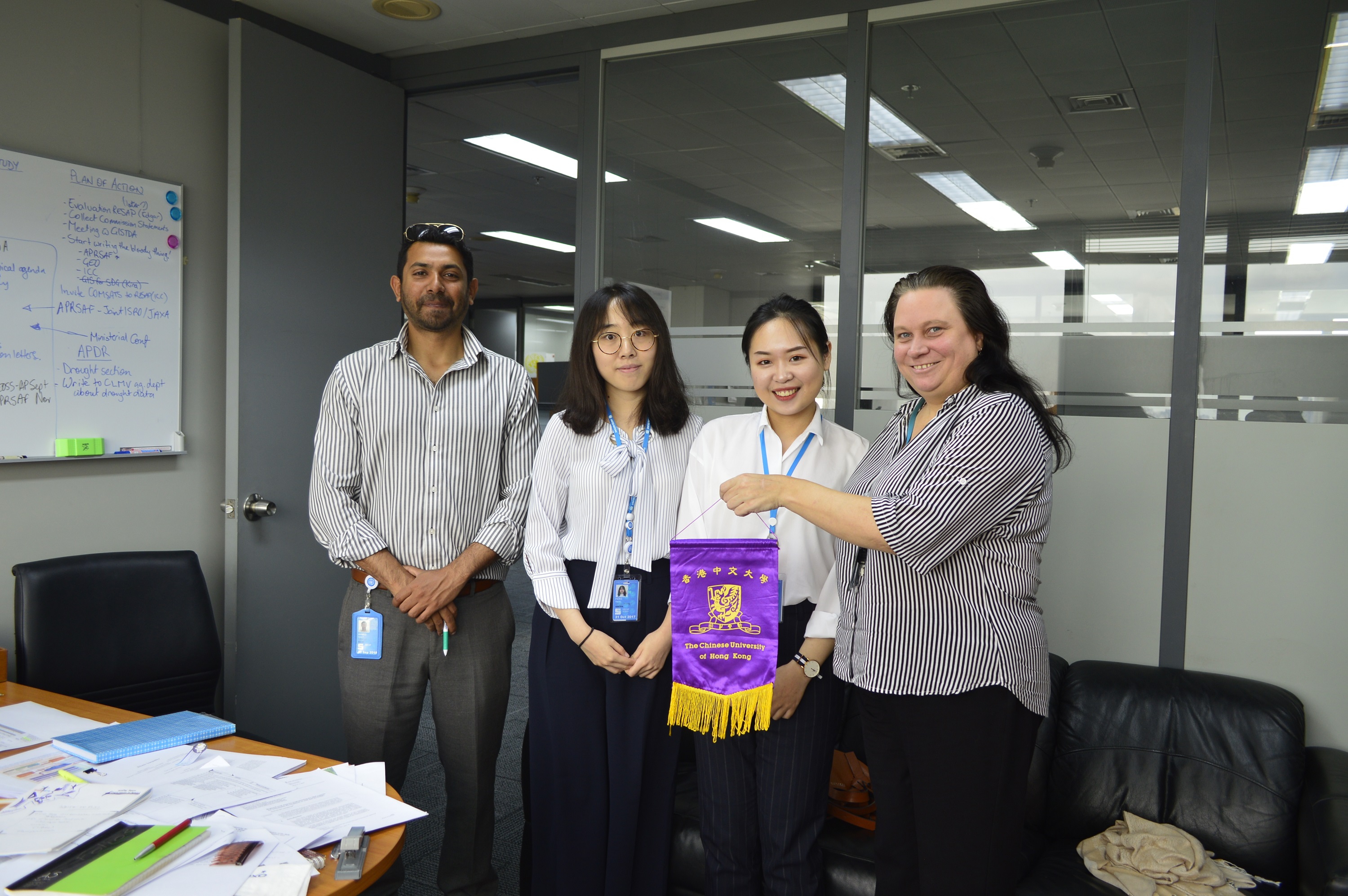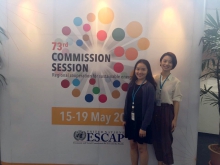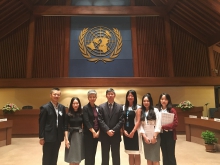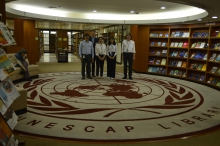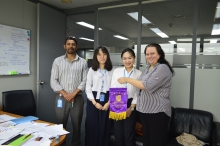CUHK
News Centre
The Fifth CUHK-UNESCAP Internship Programme a Success
The fifth phase of the internship programme jointly organised by the Institute of Space and Earth Information Science (ISEIS) of The Chinese University of Hong Kong (CUHK) and the Economic and Social Commission for Asia and the Pacific of United Nations (UNESCAP), was concluded recently. Participating in this phase of the programme were four ISEIS students studying Master of Science. They are Ding Zhang, Qianjing Yuan, Xiaoqi Fang and Di Wu. They have worked at the UNESCAP office in Bangkok, Thailand for three months. Their main duties were:
1) Updating the survey report on the demand and availability of space technology in the Asia-Pacific Region. The report focuses on three aspects. Firstly, disaster risk reduction and resilience; secondly, the management of environment and natural resources, including urban development, freshwater management, land-use and ecosystem services, oceans, air quality improvement and the monitoring of the atmosphere; thirdly, geospatial information on social services, including health and education;
2) Working as volunteers in the 73rd annual session of UNESCAP, which involved distributing materials during the meeting and managing the minutes and feedback from participants;
3) Assisting in the preparation of the 5th UNESCAP Committee on Disaster Risk Reduction, and the 21st Intergovernmental Consultative Committee to serve delegates from the UNESCAP member countries. During the preparatory phase of the conference, they were responsible for the collection of reference documents and preparation for some speeches delivered at the International Coordinating Council (ICC) meeting;
4) Assisting the UNESCAP secretariat in its daily work on the investigation of the needs, gaps and challenges in the access and efficient use of space applications in countries in the Asia-Pacific region. The survey provided information for the formulation of the Space Applications Action Plan 2018-2030 for the Asia-Pacific region and also helped to establish country-specific construction activities.
CUHK interns benefited greatly from the UNESCAP’s research and logistics work. Regarding professional skills, they were made truly aware of the important role of space technology and geographic information systems in sustainable development. In their daily lives, the UN internship provided an international platform for the students to learn about different cultures and their experience was enriched by meeting new friends of different nationalities and backgrounds.
Xiaoqi Fang, one of the interns, said: “Although we came from different backgrounds, we had a common topic, which is our dream. The dream is like a beacon. As we grow up, our social experience becomes richer and richer. Sometimes we may be confused by some things, but our dream will always guide us in the right direction.
Since 2013, five phases of the internship programme have been carried out by the ISEIS and the UNESCAP. This post-graduate internship programme receives support from institutes and universities as well as non-governmental funding. The programme was also supported by Hong Kong Shun Lung Yan Chak Foundation.



